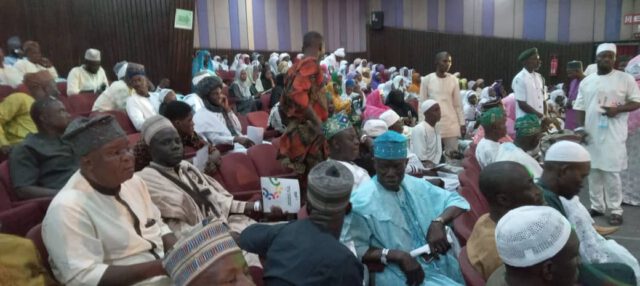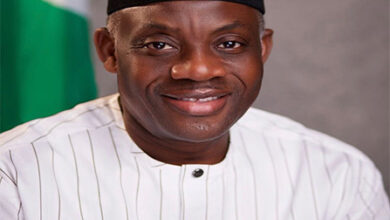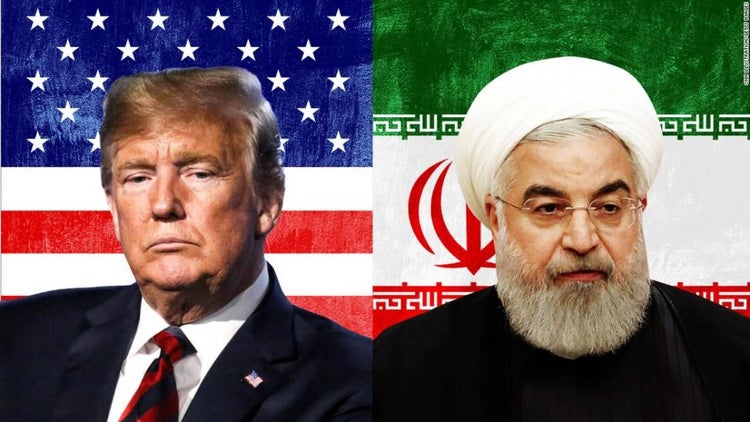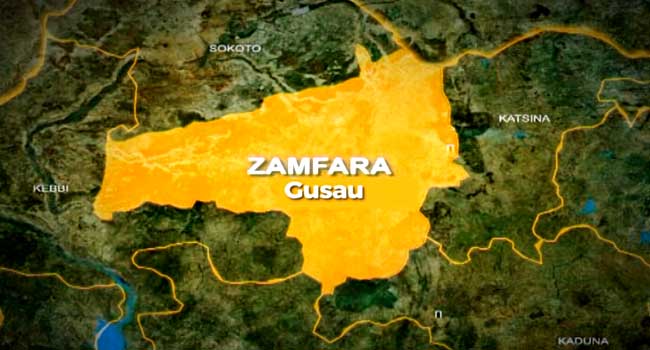
By KHUBAYB ADEFAKA
The much talked about Ibile Muslims Community Zakat and Sadaqah Foundation’s launching event has finally taken place in Lagos.

The DEFENDER’s reporter, who was at the event held at the Main Auditorium of University of Lagos, Akoka, Lagos on Saturday July 6, 2024 equivalent to Dhul-Hijjah 30, 1445 AH, said it was well attended by creme de la creme from across the Muslim Ummah where Oba of Lagos, Oba Rilwan Akiolu I, and other traditional rulers were royal fathers of the day.
The Lagos monarch, Oba Akiolu, launched and supported the Foundation with the sum of N100 million.
Deputy Governor of Lagos State, Dr. Kadri Obafemi Hamzat, while giving his remarks at the occasion urged wealthy Muslims to adhere to the principles of Zakat as, according to him, it is a means of wealth redistribution and poverty eradication in the country.
Hamzat expressed wondered why wealthy Muslims would not stick to zakat as means of poverty alleviation if even non-Islamic countries spend significantly on charity to ensure equality and peaceful coexistence among their citizens.
The Deputy Governor made this statement at the public presentation of the Ibile Muslims Community, Zakat, and Saddaqat Foundation, held at the main auditorium of the University of Lagos, Akoka.
He highlighted that in 2022, the United Kingdom spent £53.9 billion on charity to uplift its citizens from poverty.
Dr. Hamzat questioned the amount of funds spent on Zakat in Nigeria, a country with a population of over 200 million, compared to the UK, which has a population of 54 million.
The Chairman of the Board of the Steering Committee of the foundation, Alhaji Muhammad Adisa, emphasized that regular payment of Zakat would reduce poverty among Muslims and others around the world.
He said the initiative aims to remind Muslims of one of the obligatory pillars of Islam, which is Zakat.
According to him, poverty cannot be addressed solely by the government. He added that if Zakat is fully implemented, it will significantly reduce poverty.
Alhaji Muhammad Adisa noted that the Nisab in Nigeria now exceeds N9 million and that regular payment of Zakat would ensure peaceful coexistence and tranquility in society.
The Chairman of the Board of the Steering Committee of the foundation also corrected the impression that the payment of Zakat will reduce the wealth of the payer, emphasizing instead that it brings blessings from Allah.
Regarding Sadaqat, he explained that it does not require a specific amount but still attracts significant rewards from Allah.
In his comments, the Managing Director of Yinka Folawiyo Group, Chief Tijani Folawiyo, described the initiative as timely and a welcome development.
He promised full support from the group in ensuring the success of the initiative.
In the first lecture, Prof. AbdulRasaq AbdulMajeed Alaro, who spoke on the intricacies of empowerment through Zakat in Islam, said that empowering people using Zakat is tantamount to creating a conducive society for all. He noted that the global value of Zakat is over 1 trillion dollars if properly harnessed and managed.
Prof. Alaro, of the Department of Islamic Law, University of Ilorin, stated that Zakat aims to free the receiver from poverty, adding that empowerment is beneficial to both the giver and the receiver in the long run.
According to him, any society that fails to empower those who have nothing to lose is at risk of insecurity and chaos, warning that Zakat shouldn’t be given as a mere palliative.
He believes that if Zakat is properly administered, it is capable of achieving the Sustainable Development Goals and addressing economic imbalances in developing countries.
He disclosed that the 2022 report of the UNHCR shows that Nigeria was among 14 countries that benefitted from $1.2 billion spent on refugees in some parts of the world.
Prof. Alaro urged the foundation to display a high level of transparency in the management and disbursement of funds collected as Zakat to encourage donors to sustain the tradition.
The impacts of Zakat distributed must be monitored and evaluated to assess the performance of the initiative, he noted.
In the second lecture, Sheikh Sulaiman Faruq Onikijipa emphasized that Allah values Zakat so much that it was made one of the five pillars of Islam and should be paid to eight categories of people.
The Grand Mufti of the Ilorin Emirate stated that as humans, we must fight against poverty and ill health to succeed in life.
He said Islam values people engaging in productive and commercial activities, including trading, to directly address the issues of poverty and hunger.
Sheikh Onikijipa noted that no poverty alleviation program can equate to Zakat, which Allah has made compulsory for wealthy Muslims to constantly thank Him and cleanse their wealth.








